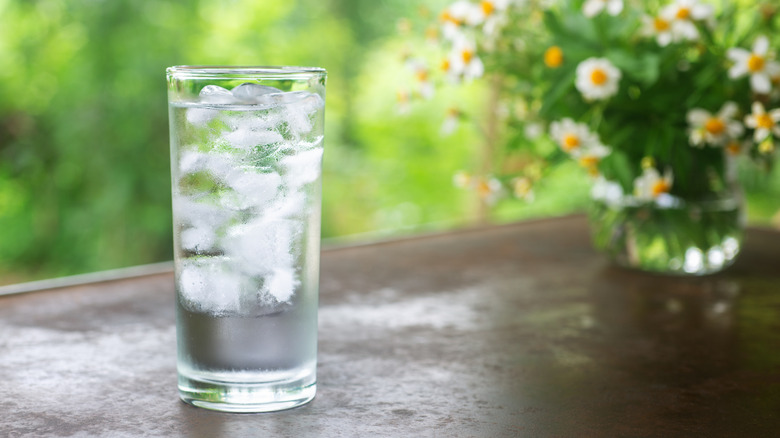This Dining Luxury Is Common In The US, But You're Unlikely To See It Much In Germany
When Americans visit Germany, they find a lot of familiar foods in local restaurants. They know sausages and sauerkraut, potato salad and strudel. Many are familiar with the concepts of bratwurst and schnitzel, and German cakes, pies, and pastries are world-famous. The egg noodles known as spaetzle look like lots of regular pastas, and giant pretzels are nearly as popular in the U.S. as they are in their land of origin. German cuisine may not have the same cachet as French or Italian, but most Americans have an easy time acclimating. This is the stuff of pubs, barbecues, food trucks, and cafeterias.
Still, some aspects of Germany's restaurants take foreigners by surprise. For example: The acclaimed German beer is rarely served as cold as it is in the U.S., so a frothy mug of pilsner may seem "warm" by comparison. Spice-lovers will have trouble finding this popular type of food in Germany. And perhaps unexpectedly, Germans don't put ice in their drinks, at least not by default. If you want to see cubes floating in your water or soft drink, you'll have to explicitly request it. Americans tend to use the terms "glass of water," "tap water," and "ice water" interchangeably, and if they don't want ice, they usually have to make a special request. In Germany, it's the opposite: If you say "Ich hätte gern ein Glas Wasser, bitte" (I'd like a glass of water, please), you'll have to add, "mit Eis" (with ice).
Why Germans often don't use ice
Why do Germans usually abstain from ice? It's hard to say, and there are several potential reasons. The milder climate may have something to do with it. Smaller refrigerators in German homes make it harder for people to make ice at home. Germans want to get their money's worth by buying beverages that aren't watered down with ice. There's a common belief among Germans that ice-cold beverages are worse for your digestion than those at room temperature, and researchers have found links between chilled liquids and various types of bodily discomfort. But the most likely answer is that it's a cultural habit, similar to the way German locals will side-eye anyone who orders white sausage after 12 p.m.
No one will pillory you for requesting ice in Germany, so go with your gut. But another idiosyncrasy of the language is that "Eis" translates as both "ice" and "ice cream," which occasionally confuses travelers. While you're figuring out the Central European way of doing things, here are some essential words and phrases to know before your trip to Germany.

